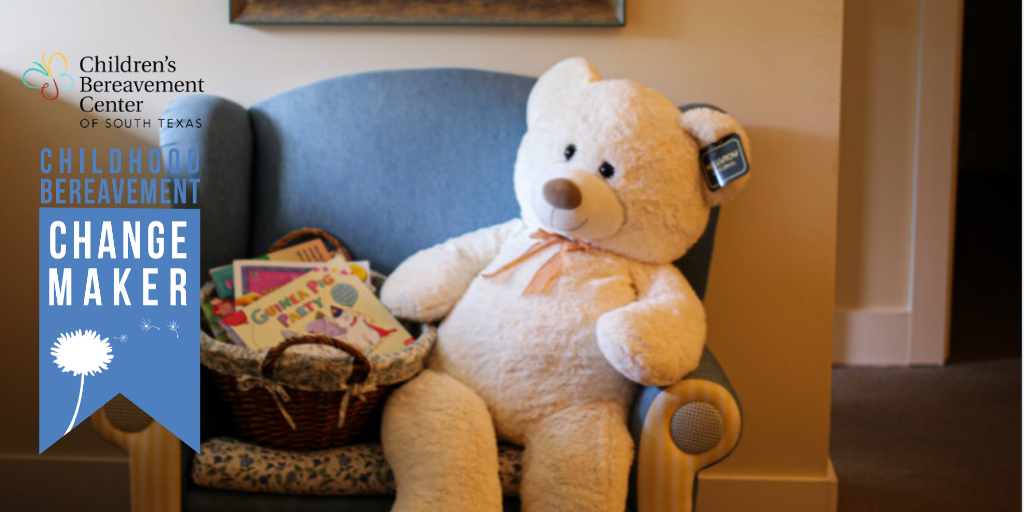Impact Stories
Making Space for Grief in South Texas
mayo 12, 2021

On the footsteps of their 25th anniversary, Children’s Bereavement Center of South Texas (CBCST) has grown from one peer support group into an organization that serves thousands of children, caregivers, and community members annually across three locations: San Antonio, Floresville, and the Rio Grande Valley. As CBCST has evolved, their organization developed a drive to be part of the national conversation around childhood bereavement. The Childhood Bereavement Changemaker initiative was an opportunity for CBCST to share what they learned through their unique experiences and learn from other bereavement champions doing work to advance the field. We sat down with Managing Director Blair Thompson, MDIV, to talk about how CBCST will use the data they receive from the Changemaker process to inform best practices and sustain grief support within their communities.
Opening New Doors
Bordering Mexico, the Rio Grande Valley is home to nearly 500,000 children. To better serve this population, CBCST leased a space in Harlingen, Tex. to address bereavement needs in this four-county region. Through the Changemaker process, the CBCST team hopes to gather data to inform decisions about investing in a permanent facility that will allow the Rio Grande Valley to become a self-sustaining, independent 501(c)3 bereavement center in the near future. This standalone location will have the autonomy to adapt programming to better serve a community that faces additional hardships including immigration challenges, poverty, health concerns, and lack of resources.
Initial data from the Changemaker process revealed the prevalence of childhood bereavement was lower in the Rio Grande Valley than Bexar County, where the San Antonio branch is located. This was surprising to the CBCST team as they work to understand the complexities of the data and how that might inform future programming across these diverse regions.
Creating Space for Teens
Blair shared that the annual CBEM report data also validated decisions to expand their San Antonio location and create space for teens and young adults to explore their grief. Serving a large population of 7 to 15-year-olds, CBCST wanted to develop programming that would address the swelling number of bereaved older teens and young adults. National CBEM estimates indicate bereavement due to the death of a parent or sibling more than doubles from age 18 to 25.
“Looking at our data and seeing that less than 10% of people we serve are teens and young adults, we just knew we weren’t serving those kids. Our facility was designed with younger people in mind. We very intentionally included in the new facility, increased space to serve older teens and young adults.”
County- and state-level CBEM data also confirmed the need for CBCST to have a presence in schools, an initiative they struggled to find footing with early on. A combination of public and private funding is necessary for their staff to continue this work, specifically with schools serving lower-income families. Data has helped support their fundraising needs to meet grieving youth where they are.
Grief Does Not Stop
Like many grief organizations, CBCST felt the impact of COVID-19 in their communities. As of April 27, the Bexar County area alone has reported roughly 3,450 COVID-19 related deaths.
CBCST pairs individuals together with similar loss experiences. COVID-19 may have previously fit into a chronic illness group at CBCST, but there was enough need in their community to create a virtual group dedicated to supporting those grieving a COVID-19 death loss. Throughout the pandemic, CBCST also saw grieving community members accessing services more frequently, resulting in 4,200 individual counseling sessions.
Grief does not stop, and neither can this important work. As CBCST prepares to serve the unique needs of grieving children and families in South Texas – CBEM data and information gained from the Changemaker process will help staff create sustainable programs for underserved populations and educate their funders on the importance of grief care, now more than ever.

Judi’s House/JAG Institute partnered with the New York Life Foundation to help support grieving children and families by creating the Childhood Bereavement Estimation Model.
